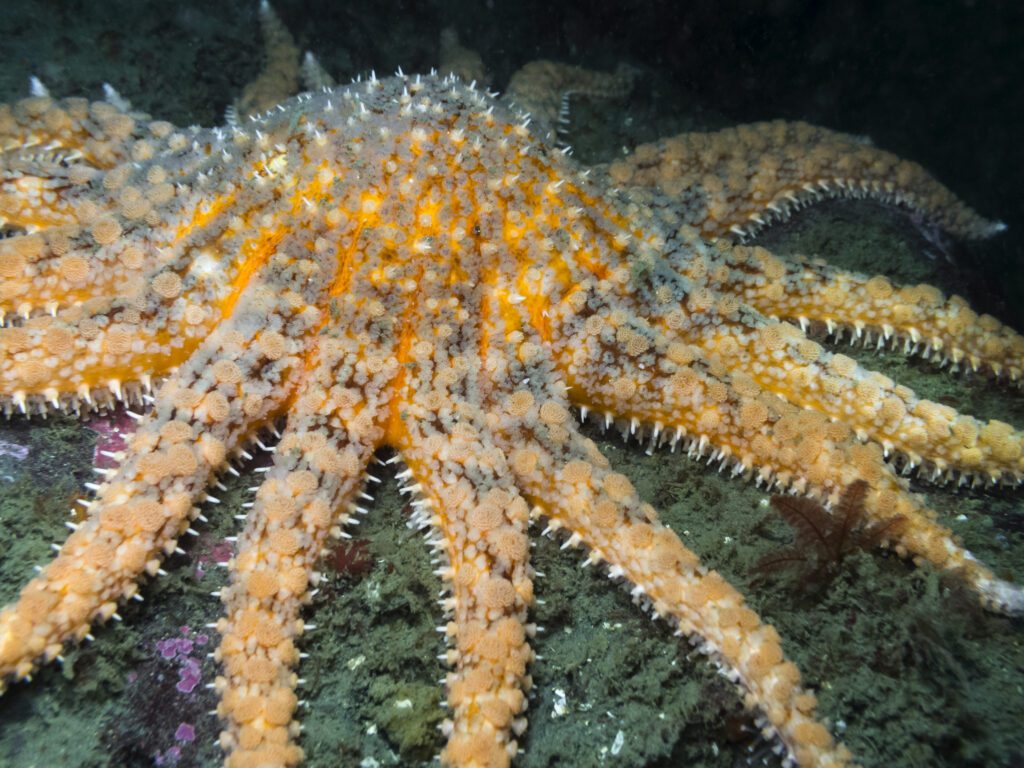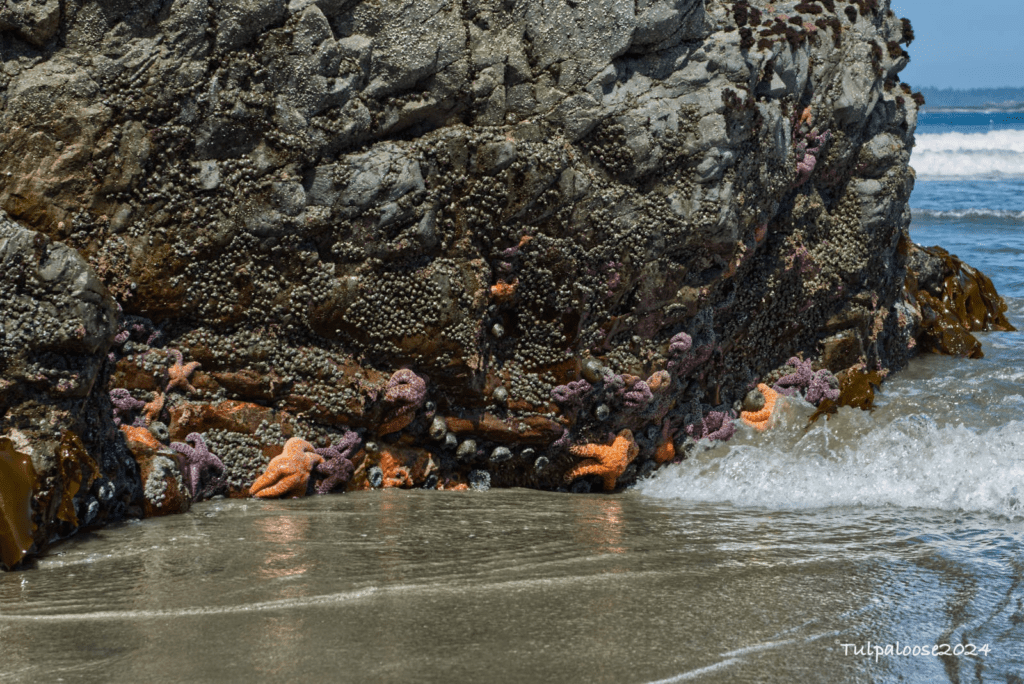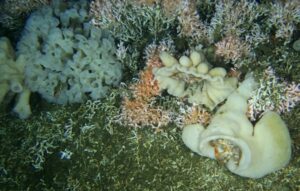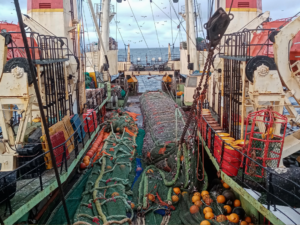
There’s a ray of hope in the threat posed to BC’s coastal food web by the mass deaths of sea stars. Researchers have begun releasing lab-raised sunflower sea stars into the ocean to rebuild their dwindling populations.
Between 2013 and 2017, more than 90% of sunflower sea stars died, possibly from ocean warming and a mysterious plague called sea star wasting syndrome. Of 20 sea star species on the coast affected, the hardest hit was the sunflower sea star, which has as many as 20-30 arms and is found from Mexico to the Aleutian Islands.

The loss of sunflower sea stars is especially problematic for many commercially important species and the entire coastal ocean ecosystem. Sunflower sea stars are critical to defending the kelp forests that many species need as nurseries from urchins.
Sunflower sea stars eat sea urchins, and urchins eat kelp. In areas where the sea stars entirely vanished, urchin populations have boomed, leaving so-called “urchin barrens in their wake,” say researchers.
The kelp forest “is the most important marine habitat on our coast,” says scientist Jason Hodin of the University of Washington. Wherever sea stars died out and the urchin population exploded, he told CBC, “the kelp forest started to disappear.”
Hodin leads a project at the University of Washington in Seattle that raises sea stars in a laboratory. This year, the team started “planting” the animals in cages in the ocean near the San Juan Islands. “It’s all pointing in pretty positive signs that this was successful,” said Hodin in a press release.
Since 2020, the Sunflower Sea Star has been ranked as “critically endangered,” the last stage before becoming extinct in the wild, by the International Union for Conservation of Nature’s Red List of Threatened Species.
Some populations of the animal entirely vanished, said the IUCN Red List assessment, and the disease is still present in remaining populations. “Warming water from global climate change seems to contribute to disease severity,” said the IUCN assessment.
“The decline of this predatory sea star species may have ecosystem-wide implications,” it added.
The Washington team is one of several research groups in North America now raising the animals in captivity. At the three sites where they’ve been placed in the San Juan Islands, said the Washington press release, “The team discovered that lab-reared stars did well, and Hodin hopes that these efforts will pave a way toward the restoration of healthy kelp forests.”
Read the University of Washington press release here: https://www.washington.edu/news/2024/02/16/sunflower-stars/
Read a CBC story, and link to an interview with Hodin, here: https://www.cbc.ca/news/canada/british-columbia/sunflower-star-critically-endangered-washington-biologist-1.6017480




